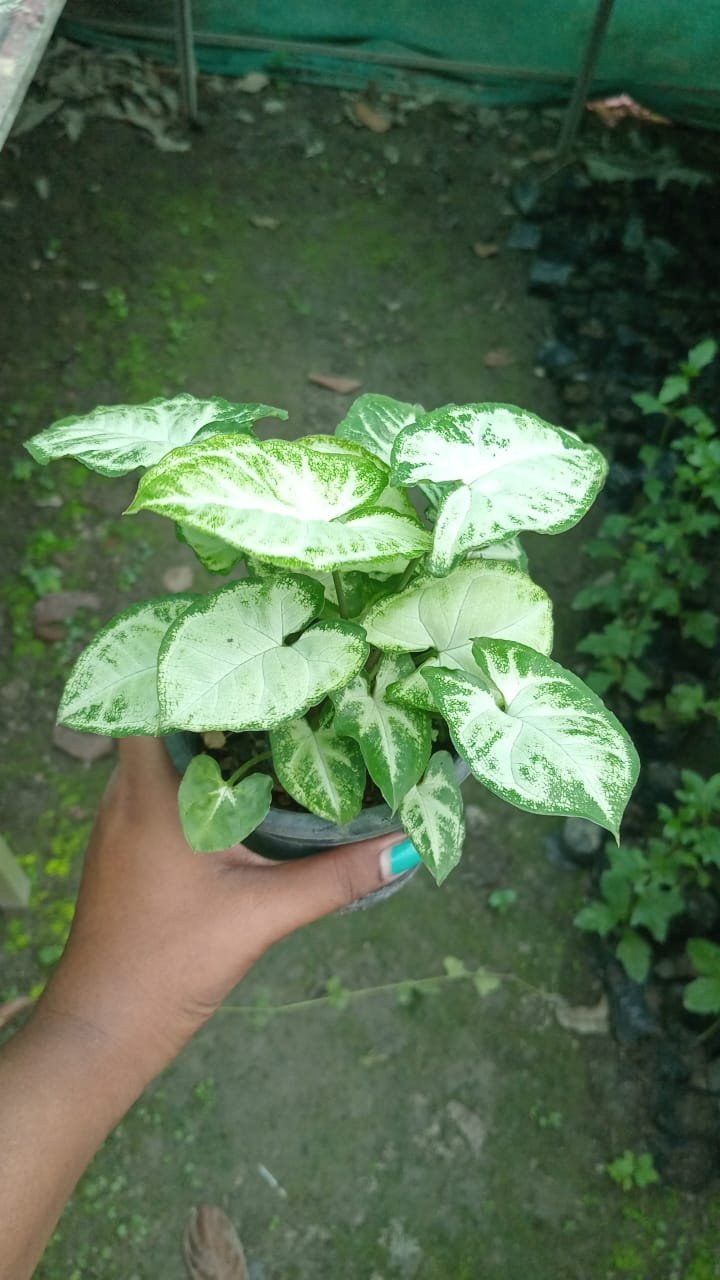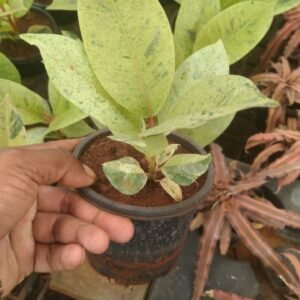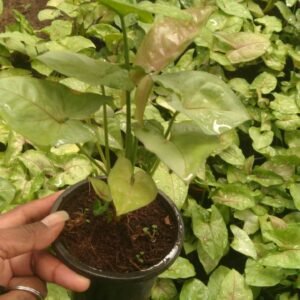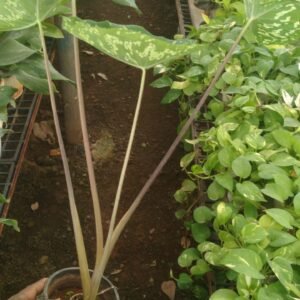Syngonium, commonly referred to as Arrowhead Plant or Nephthytis, is a charming and versatile houseplant known for its attractive foliage and ease of care. With over 30 species native to tropical rainforests of Central and South America, Syngonium has gained popularity among plant enthusiasts for its unique leaf shapes, vibrant colors, and adaptability to indoor environments. Let’s explore the characteristics, care tips, and appeal of Syngonium plants.
Overview of Syngonium
Syngonium plants are characterized by their distinctive arrow-shaped leaves, which can vary in color from bright green to variegated shades of cream, pink, and even purple, depending on the species. The leaves often start as heart-shaped and become more arrow-like as they mature. One of the most popular varieties is Syngonium podophyllum, which showcases a range of colors and patterns.
Syngonium plants are typically trailing or climbing vines, making them ideal for use in hanging baskets, as ground covers, or as climbing plants with the help of a support structure like a trellis. Their lush foliage can transform any space, adding a tropical vibe to homes and offices.
Care and Maintenance
Caring for Syngonium plants is relatively straightforward, making them suitable for both novice and experienced plant enthusiasts. Here are some essential tips for keeping your Syngonium healthy:
Light Requirements
Syngonium plants thrive in bright, indirect light but can tolerate low light conditions. However, in lower light, the growth may slow down, and the plant may lose some of its vibrant colors. Avoid placing them in direct sunlight, as it can scorch the leaves. Ideally, place your Syngonium near a window with filtered light to promote healthy growth.
Watering
Maintaining the right moisture level is crucial for the health of Syngonium. Water the plant when the top inch of soil feels dry to the touch. It’s important to keep the soil consistently moist but not soggy, as overwatering can lead to root rot. During the growing season (spring and summer), Syngonium may require more frequent watering, while in fall and winter, you can reduce watering as the plant’s growth slows.
Humidity
Syngonium plants prefer moderate to high humidity levels, typical of their tropical origins. While they can tolerate average humidity, providing higher humidity will promote healthier growth. If you live in a dry climate or during winter months, consider using a humidifier, misting the leaves regularly, or placing the pot on a pebble tray filled with water to enhance humidity.
Soil
A well-draining potting mix is ideal for Syngonium plants. A standard houseplant potting mix that retains some moisture while allowing excess water to drain works well. Adding perlite or orchid bark to the mix can improve drainage and aeration.
Propagation
Propagation of Syngonium can be done easily through stem cuttings. To propagate, take a healthy stem cutting with a few leaves and place it in water or directly in soil. If propagating in water, change the water regularly to keep it fresh. Once roots develop, you can transfer the cutting to soil. Syngonium can also be propagated through division, where you separate the plant into smaller sections, ensuring each section has roots and leaves.
Potential Issues
While Syngonium plants are generally hardy, they can face some common issues, including pests like mealybugs, spider mites, and aphids. Regularly inspect your plant for signs of infestation, and treat any issues promptly with insecticidal soap or neem oil. Overwatering can also lead to yellowing leaves or root rot, so it’s important to ensure proper drainage and water the plant correctly.
Aesthetic Appeal
Syngonium plants are prized for their beautiful foliage and adaptability. Their unique leaf shapes and colors can enhance the aesthetic of any indoor space. They work well in various settings, from modern apartments to cozy homes. Syngonium can be used as a hanging plant, draping gracefully from shelves, or trained to climb on a trellis or support for a more vertical display.
Benefits of Syngonium
In addition to their beauty, Syngonium plants offer several benefits:
- Air Purification: Like many houseplants, Syngonium is known for its ability to filter toxins from the air, contributing to improved indoor air quality.
- Low Maintenance: Their resilience and adaptability make them an excellent choice for busy individuals or those new to plant care.






Reviews
There are no reviews yet.